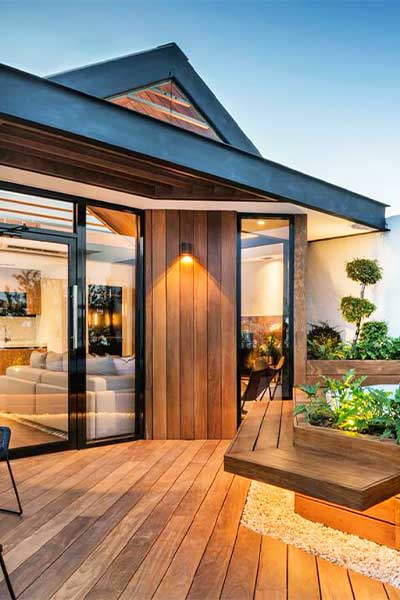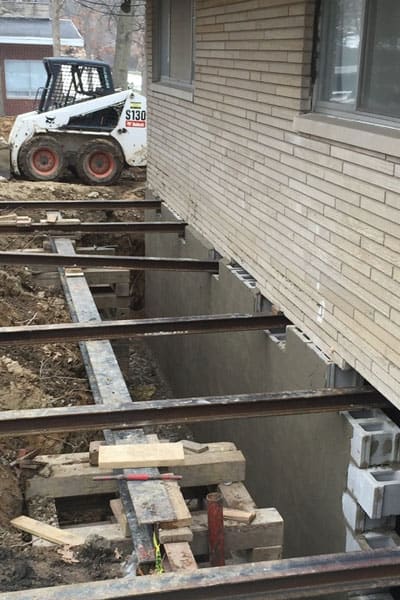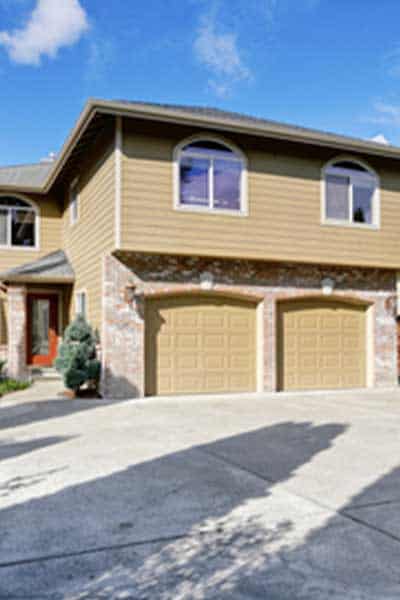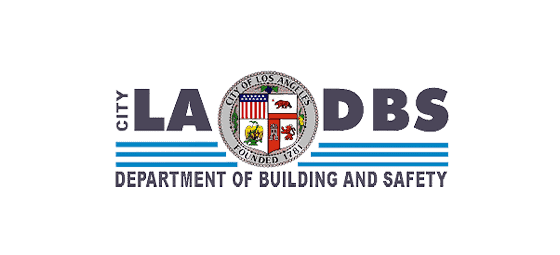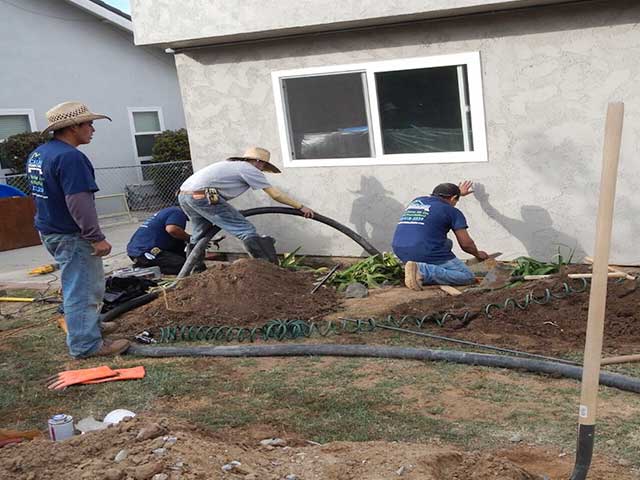When it comes to maximizing your valuable real estate space and opening the opportunity for additional income through room renting, homeowners all over Los Angeles are turning to Accessory Dwelling Units (ADUs) to transform their living space. Interested in expanding the possibilities of your property? Discover everything you need to know about your Los Angeles ADU.
ADU Regulations and Permits
What Are ADUs?
ADUs are secondary housing units that reside on residential single-family lots. These structures are significantly smaller than traditional homes and are located adjacent to, yet separate from, the primary property residence. This makes them their own self-contained units.
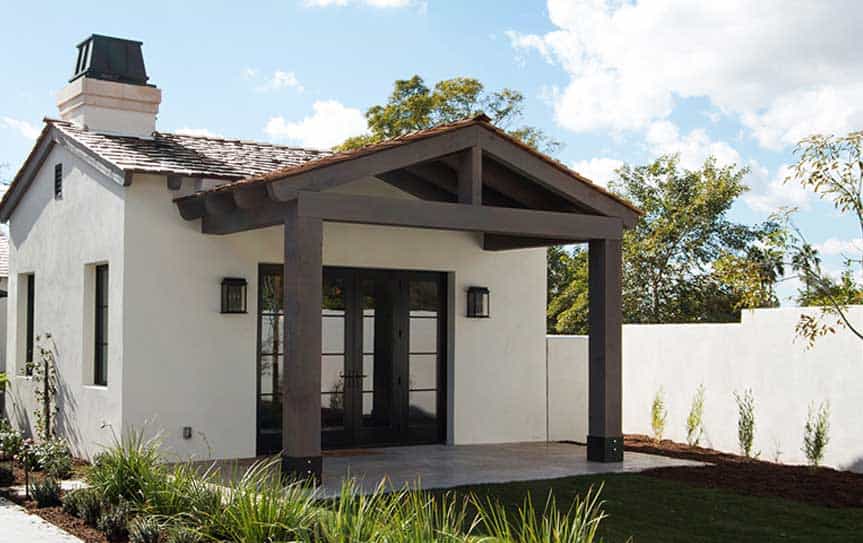
However, they cannot be purchased independently from the main single family residence, though they can be rented. An ADU in Los Angeles is a highly profitable commodity, as square feet are costly and room renting is in high demand. In the past years, the popularity of ADUs has rapidly risen to accommodate the need for more living space.

ADU Regulations in Los Angeles
While the popularity of ADUs in Los Angeles has been rapidly rising, it’s necessary for all ADUs to follow specific rules, regulations, and codes in order for construction to be approved. On September 27, 2016, Senate Bill No. 1069 was signed into effect by Senator Bob Wieckowski to increase the accessibility of ADUs for California homeowners in a bid to raise the supply of California affordable housing. This law made it easier and more affordable to complete an ADU project, as the burden of utility hook-up fees and off-street parking requirements were both eased.
This makes it much more accessible for homeowners to build an ADU on their property or convert their garage into one. However, homeowners still need to meet all permit requirements before their ADU project is given a green light.
Types of ADUs
Since ADUs are separate from the main house and have their own kitchen, bathroom, and living quarters, they are a highly valuable commodity that can be rented year-round.
Though ADUs share many general characteristics, they differ structurally. Los Angeles ADUs can be built from converted garages or attic or basement conversions.
They can also be stand-alone units or an attachment to the main house, as long as the ADU has its own entry. Whether they are built from attached, detached, or converted space, all Los Angeles ADUs must comply with California state standards.
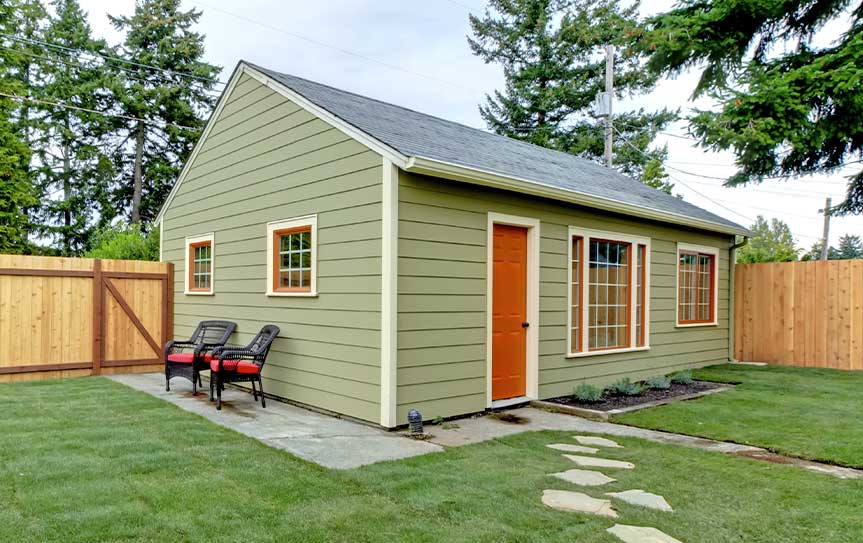

Los Angeles ADU Permits and Regulations
In order to be permitted with a site plan, the property zoning for an ADU must be a single-family residence with only one single-family residence existing on-site, including R-A, R-1, R-2, R-3, R-4, A-1, or A-2. Only one ADU is permitted per lot. The ADU project must fully comply with development standards, and all appropriate paperwork must be submitted.
In addition to the site plan application sent to the Department of Regional Planning, copies of both the building permits and building description blank/slip must be submitted. When it comes to the specifics about your ADU, these particular forms of housing are subject to a set of standardization for unit size, yard setback, height, and parking.
The size of an attached ADU in Los Angeles is not allowed to exceed 50% of the primary residence up to 1,200 square feet, while the minimum ADU size is 150 square feet.
However, detached ADUs can be up to 1,200 square feet no matter the size of the main home. There must be at least one room that is habitable in an ADU that is a minimum of 70 square feet, with a minimum of 30 square feet for the bathroom, and 50 square feet for the kitchen. When ADU is parking is required, there must be one parking space provided for single bedrooms and two spaces provided for two or more bedrooms. However, ADU parking is not always required, such as when the ADU is located within half a mile of public transit.
The ADU needs to be visually compatible with the primary home, as well as the general neighborhood.
No minimum lot size is required for an ADU, though you will have to refer to local building code for height restrictions. Except for special circumstances, the height of an ADU should not exceed 25 feet. Both the primary residence and the ADU are able to be rented by the homeowner at the same time, as there isn’t an owner occupancy clause. However, the ADU is not allowed to be sold independent from the home.
In order to have your Los Angeles ADU project approved for construction, you will need to follow all of the rules and regulations and submit all paperwork to the appropriate departments prior to the start of construction.
WHAT WE DO
Expert Services
One Stop Shop For Your Property Repairs
California Foundation Works, is a Los Angeles Based Foundation, Drainage and Concrete Contractor.

